What skills do you need to be a hotel housekeeper? Answer is – Attention to detail, physical stamina, organizational skills, time management, the ability to work independently, and sometimes customer service skills are all valuable for hotel housekeeping.
Summary
- Hotel housekeeping is responsible for the cleanliness and presentation of hotel rooms and common areas.
- Housekeepers perform tasks like changing linens, cleaning bathrooms, vacuuming, dusting, and restocking supplies.
- Cleanliness is directly tied to guest satisfaction, making housekeeping an essential part of hotel operations.
- Successful housekeepers are detail-oriented, organized, and physically capable of the work.
Hotel Housekeeping: Duties, Skills, and the Impact on Your Hotel
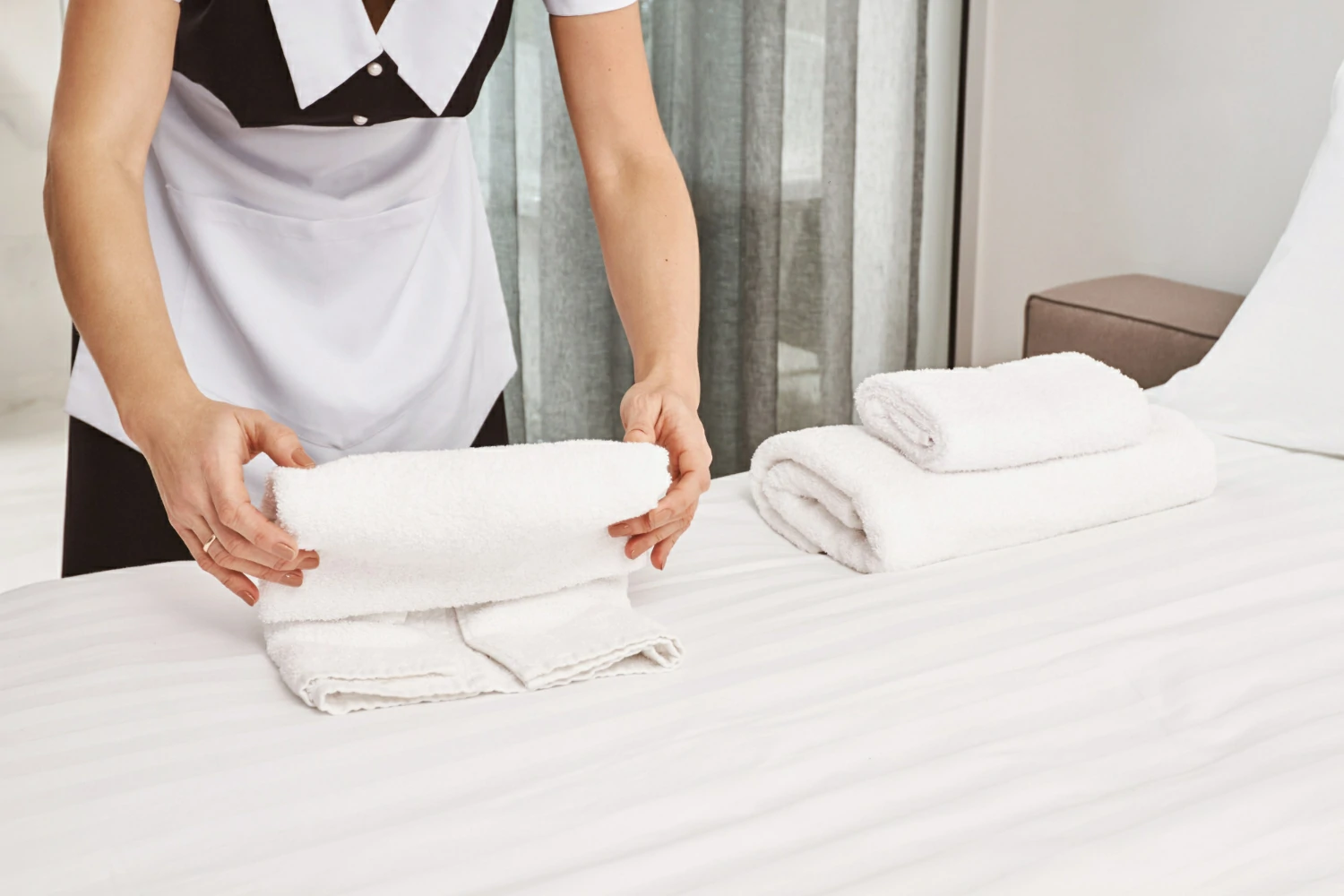
What is hotel housekeeping?
Hotel housekeeping is the unsung hero of the hospitality industry. It encompasses the multifaceted department responsible for maintaining the cleanliness, order, and overall aesthetic appeal of a hotel establishment.
From the moment a guest steps into the lobby to when they check out, the meticulous work of hotel housekeeping plays a pivotal role in shaping their experience.
Housekeeping teams are responsible for a wide range of tasks. Their primary focus is on guest rooms, ensuring fresh linens, spotless bathrooms, replenished amenities, and an overall welcoming atmosphere.
Additionally, they maintain the polished appearance of public areas such as lobbies, corridors, restrooms, restaurants, and even outdoor spaces depending on the hotel.
The significance of hotel housekeeping in the hospitality industry
The importance of hotel housekeeping cannot be overstated. Cleanliness and hygiene are fundamental expectations of guests, and it directly influences their perception of a hotel. First impressions matter, and a well-maintained room sets the tone for a positive stay.
Research consistently shows a strong correlation between hotel cleanliness and guest satisfaction, which in turn leads to positive online reviews and repeat bookings.
Beyond the obvious aesthetic benefits, hotel housekeeping plays a crucial role in safeguarding public health. By diligently sanitizing surfaces, changing linens regularly, and attending to hygiene protocols, housekeepers create a safe and healthy environment for guests and staff alike.
This is particularly important in the wake of the COVID-19 pandemic, where heightened hygiene standards have become the norm.
Sarah Williams Expert Opinion
“Hotel housekeeping is not just about making beds and cleaning bathrooms,” states Sarah Williams, a veteran housekeeping manager with over 15 years of experience in luxury hotels. “It’s about creating a welcoming and comfortable space where guests can truly relax and feel taken care of.”
Key Responsibilities of Hotel Housekeepers
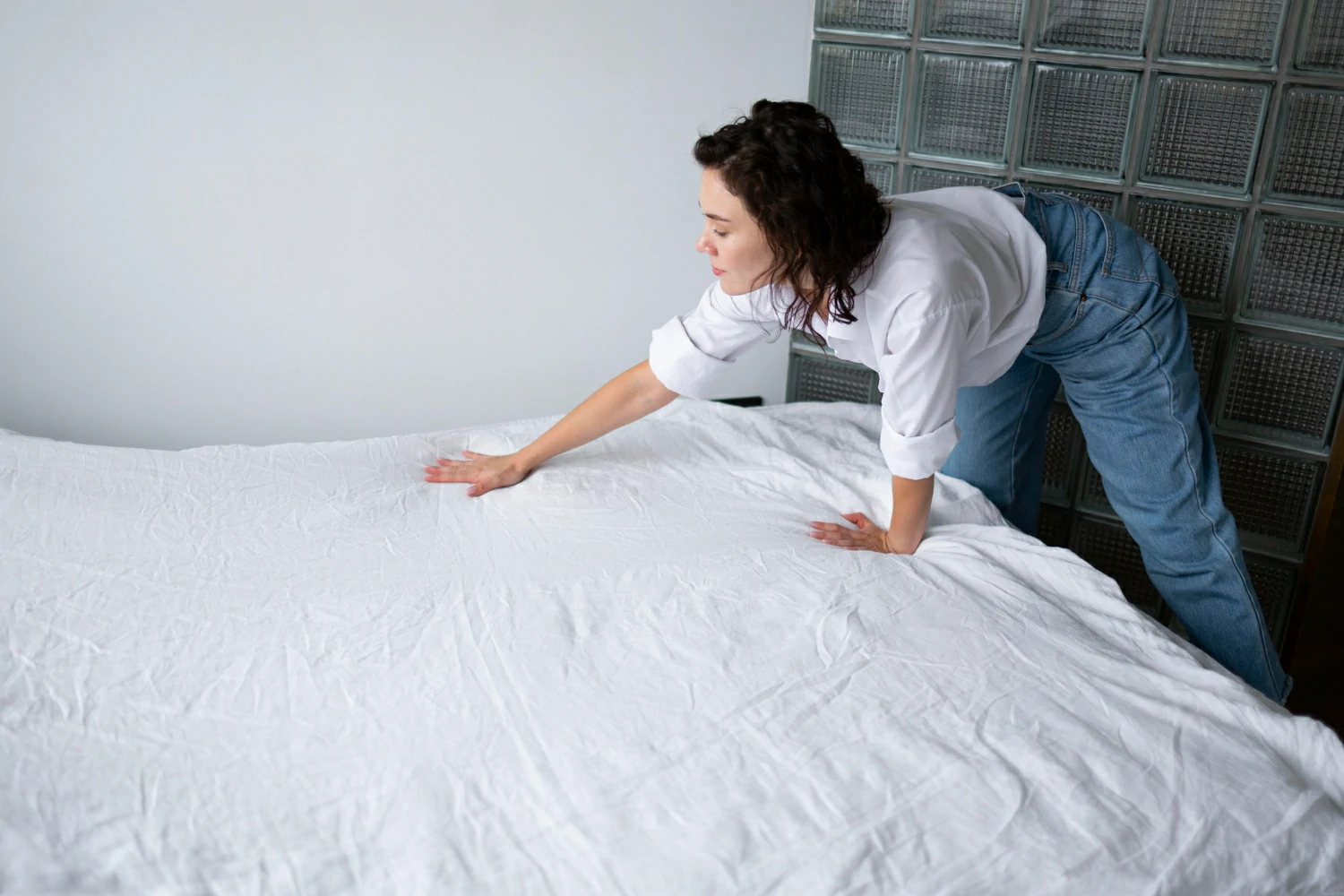
Hotel housekeepers are at the heart of maintaining a welcoming and hygienic environment for guests. Their daily tasks are diverse and detail-oriented, ensuring that each room meets the hotel’s exacting standards. Let’s break down the core elements of their responsibilities:
1. Guest Room Cleaning
Changing bed linens and making beds: A fresh, crisply made bed is the hallmark of a well-cleaned hotel room. Housekeepers meticulously strip old linens, replace them with clean sheets, duvets, and pillowcases, ensuring a comfortable and inviting sleeping space. This includes checking for and removing any stains on the linens.
Cleaning and sanitizing bathrooms: Arguably one of the most important areas of focus, housekeepers thoroughly clean and disinfect all bathroom surfaces. This includes toilets, sinks, showers/bathtubs, mirrors, and floors. They pay close attention to removing soap scum, water stains, and any traces of hair or debris, leaving the bathroom sparkling and hygienic.
Vacuuming and dusting: Floors are vacuumed to remove dirt, dust, and any small objects. Housekeepers dust all furniture, including headboards, nightstands, desks, and dressers. They also address often-overlooked areas like baseboards, window sills, and blinds.
Restocking toiletries and amenities: Housekeepers check and replenish essential supplies like shampoo, conditioner, soaps, lotions, and toilet paper. They ensure that towels are neatly folded and placed, and that drinking glasses are clean and ready for use. Some hotels also offer additional amenities like shower caps, vanity kits, or sewing kits that housekeepers ensure are present.
Emptying trash and recycling: Wastebaskets throughout the room and bathroom are emptied, liners are replaced, and any recyclable items are sorted according to the hotel’s practices.
Tidying up the room and ensuring a presentable appearance: The finishing touch! Housekeepers arrange furniture neatly, ensuring that chairs are tucked in and any lamps or items on surfaces are straightened. They may open curtains or blinds to let in natural light, and make a final visual check, ensuring the room looks inviting and ready for the next guest.
Maria Rodriguez Expert Opinion
“Attention to detail is the lifeblood of a good housekeeper,” emphasizes Maria Rodriguez, Head of Housekeeping at a popular resort hotel. “It’s the difference between a clean room and a room that feels truly cared for.”
Resources: American Hotel & Lodging Association (AHLA) – Housekeeping Resources
2. Public Area Maintenance
While guest rooms are a primary focus, hotel housekeepers also play a vital role in ensuring the cleanliness and polished appearance of public spaces. These areas are often the first impression guests have of the hotel and contribute significantly to its overall atmosphere.
Cleaning and maintaining lobbies, hallways, and corridors These high-traffic spaces require frequent attention. Housekeepers vacuum carpets, mop or polish hard floors, and dust surfaces such as reception desks, seating areas, and decorative elements. They empty trash receptacles, tidy up any misplaced items, and straighten furniture to maintain a welcoming and organized feel.
Upkeep of restrooms and public spaces Similar to guest room bathrooms, public restrooms require thorough cleaning and sanitization. Housekeepers restock supplies like toilet paper, paper towels, and soap, ensuring these spaces are always functional and hygienic for guests. Additionally, they may maintain the appearance of other public areas like fitness centers, business lounges, or breakfast rooms.
Sanitizing surfaces and touchpoints Housekeepers diligently sanitize high-touch surfaces throughout public areas. This includes doorknobs, elevator buttons, handrails, light switches, and any other frequently touched surfaces. This practice is especially crucial in reducing the spread of germs and maintaining a healthy environment.
Polishing and maintaining floors Depending on the surfaces, housekeepers may polish marble or wood floors, buff tile floors, or use specialized cleaning machines for carpets. Well-maintained floors enhance the overall aesthetic of the space and contribute to a sense of luxury.
Monitoring cleanliness of outdoor areas (if applicable) Some hotels have outdoor spaces like pools, patios, or gardens that also fall under the purview of housekeepers. This might involve sweeping debris, cleaning outdoor furniture, emptying trash cans, and ensuring the area is presentable for guest use.
Ahmed Khan Expert Opinion
“Public areas are the face of the hotel,” says Ahmed Khan, a Housekeeping Supervisor with over a decade of experience. “It’s our job to ensure that they always look their best, creating a sense of pride for both guests and staff.”
Resources: International Sanitary Supply Association (ISSA) – Resources for cleaning public spaces
Essential Skills and Qualities of Hotel Housekeepers
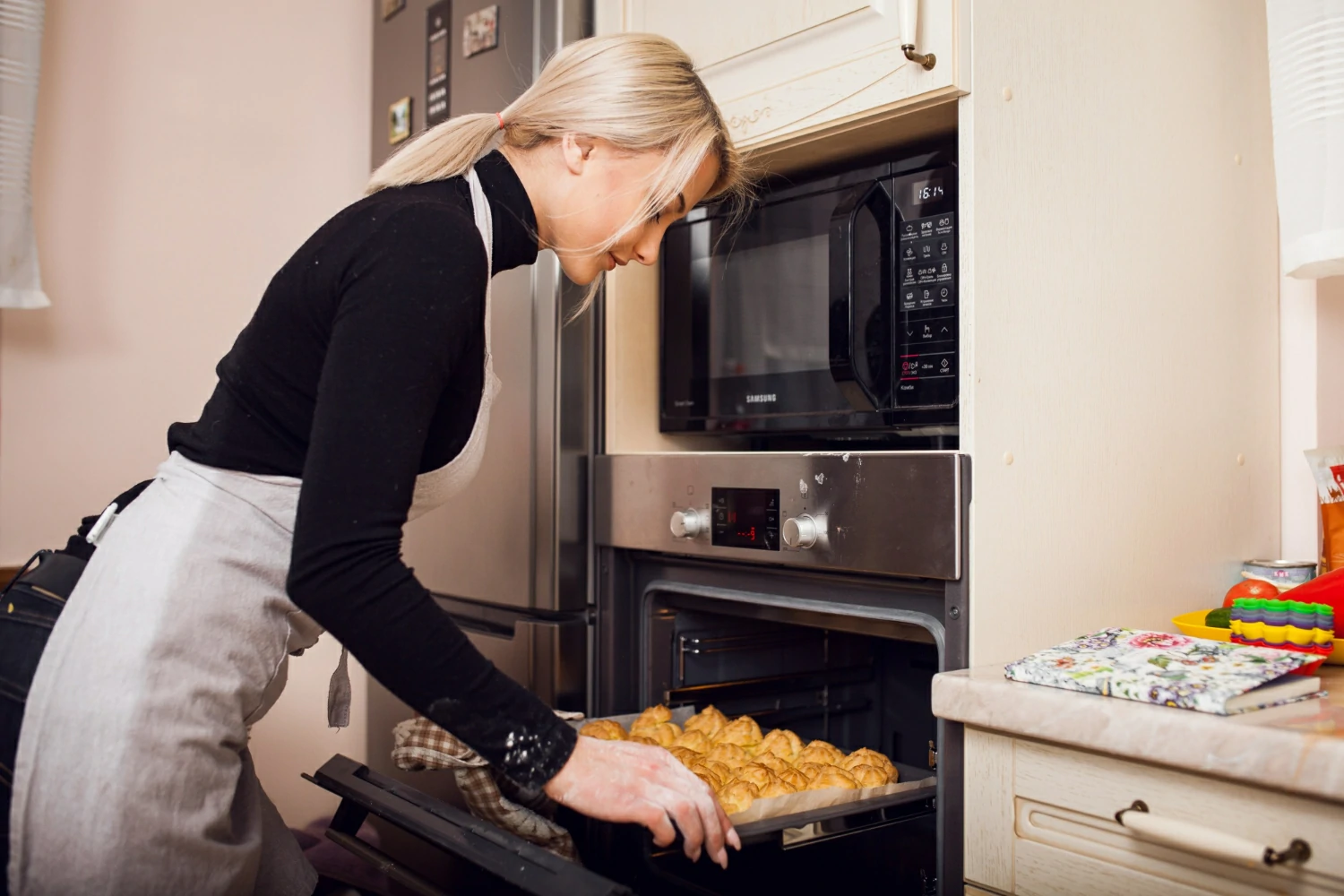
While the tasks of hotel housekeeping might seem straightforward, the best housekeepers possess a unique set of skills and attributes that allow them to excel in this demanding role.
1. Attention to Detail
A keen eye for detail is paramount in hotel housekeeping. Guests expect a pristine room, and even small oversights can detract from their experience.
Successful housekeepers notice and address every element: a stray hair in the shower, a smudge on the mirror, or a misaligned pillowcase. They have a meticulous approach, ensuring no spot goes uncleaned.
2. Physical Stamina
Housekeeping is physically demanding. Housekeepers are on their feet for long hours, bending, lifting, pushing, and carrying cleaning supplies.
They might move furniture, make beds with heavy linens, or maneuver cleaning carts through hallways. Maintaining physical fitness and endurance is crucial for success in this role.
3. Organizational Skills
Housekeepers must be highly organized to manage their workload efficiently. They prioritize tasks, ensuring each room is thoroughly cleaned within the allotted time.
They systematically work through checklists, making sure they have all the necessary supplies and equipment before starting in a room.
4. Time Management
With a set number of rooms to clean each shift, time management is key. Experienced housekeepers develop efficient cleaning routines, minimizing wasted time and maximizing productivity.
They are adaptable, able to adjust their pace and workflow as needed to accommodate unexpected delays or special requests.
5. Ability to Work Independently
While teamwork is important in the broader hotel environment, housekeepers predominantly work independently. They must be self-motivated, staying focused and on task without constant supervision.
They are problem-solvers, able to address issues as they arise and make decisions independently to ensure guest satisfaction.
6. Reliability and Punctuality
Hotels rely on housekeepers to be dependable and punctual. Guests expect their rooms to be ready at check-in time, and delays can create a ripple effect throughout the hotel’s operations.
Housekeepers who consistently show up on time and complete their assigned tasks are highly valued by hotel management.
7. Customer Service Orientation (sometimes)
While guest interaction may not always be a primary focus for housekeepers, a friendly and helpful demeanor goes a long way.
A simple greeting in the hallway, offering assistance with luggage, or promptly responding to a guest’s request demonstrates a commitment to excellent customer service.
Jessica Patel Expert Opinion
“A great housekeeper isn’t just focused on the cleaning tasks, they also have a sense of ownership over the guest experience,” says Jessica Patel, Director of Housekeeping at a renowned boutique hotel. “They take pride in their work and understand its impact on the overall hotel stay.”
Tools, Equipment, and Safety in Hotel Housekeeping
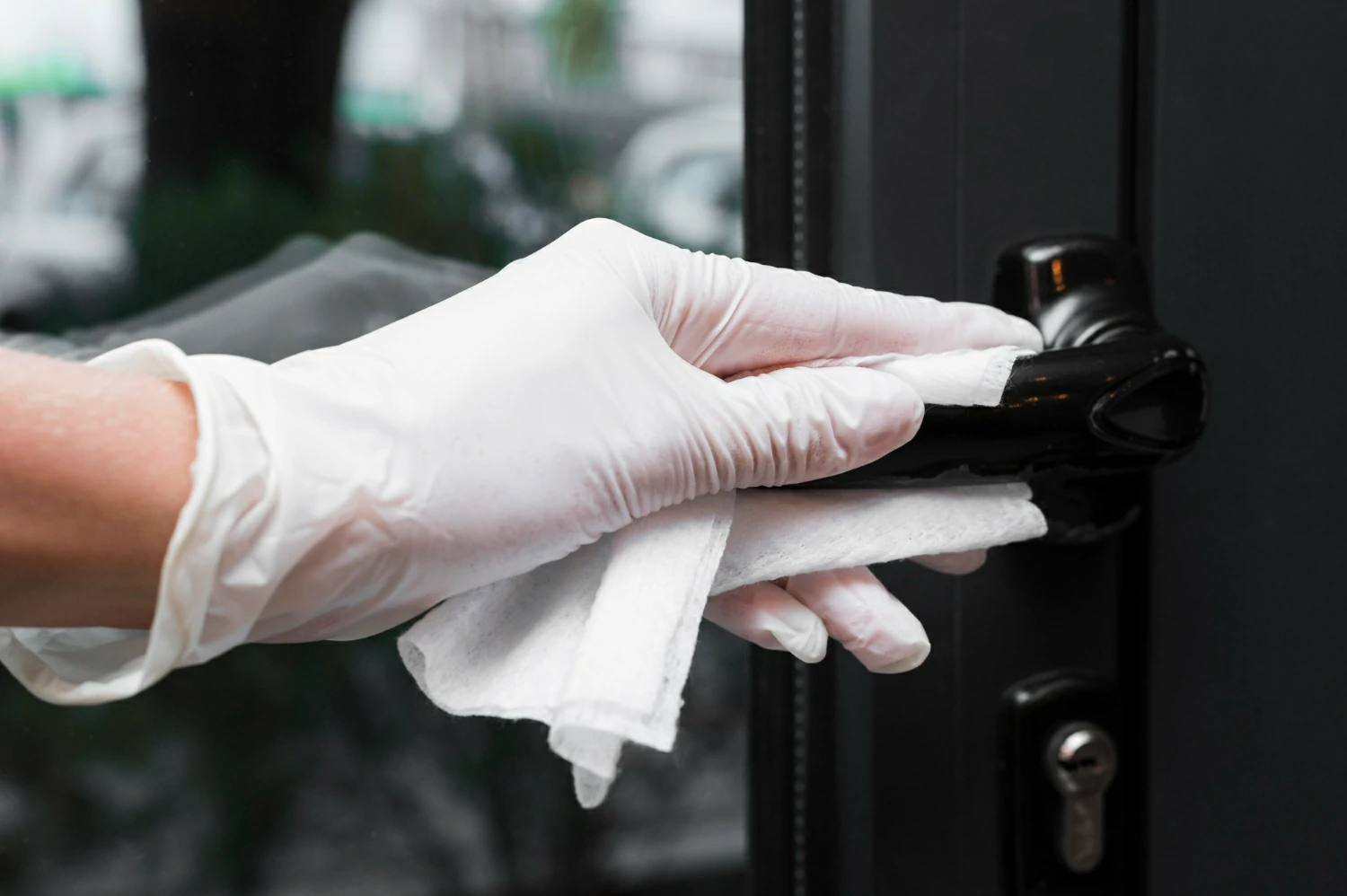
Hotel housekeepers rely on a range of specialized tools, equipment, and cleaning products to perform their duties effectively and safely. Understanding these elements is crucial for protecting both housekeepers and guests.
1. Cleaning Supplies and Chemicals
Housekeepers utilize a variety of cleaning chemicals to address different surfaces and cleaning tasks. Here’s a breakdown of some common products:
Multipurpose cleaners: These versatile solutions are used for cleaning various surfaces in guest rooms and public areas, including countertops, tables, and non-carpeted floors. They are effective in removing light dirt, grime, and fingerprints.
Disinfectants: Essential for maintaining a hygienic environment, disinfectants kill a wide range of germs and bacteria on surfaces. Housekeepers apply them to high-touch areas like doorknobs, light switches, toilet handles, and bathroom countertops.
Glass cleaners: Specialized formulas designed to clean glass and mirrors without leaving streaks or residue. They are used on windows, mirrors, and shower enclosures.
Bathroom cleaners: These powerful cleaners are formulated to tackle soap scum, grime, and hard water stains in bathroom sinks, tubs, and toilets. They often contain stronger chemicals and may require special handling precautions.
Omar Khan Expert Opinion
“Choosing the right cleaning products is essential for both efficiency and safety,” says Omar Khan, Housekeeping Manager with expertise in green cleaning practices. “We look for products that are effective but also prioritize the health of our housekeepers and minimize environmental impact.”
Resources:
- Occupational Safety and Health Administration (OSHA) – Fact Sheets on cleaning chemicals
- Environmental Protection Agency (EPA) – Safer Choice Program (for environmentally friendly cleaning products).
2. Equipment
In addition to cleaning supplies, housekeepers use various pieces of equipment to efficiently carry out their tasks. Here’s a closer look at some key tools of the trade:
Cleaning carts or trolleys: These mobile workstations are a housekeeper’s lifeline. They are designed with shelves, compartments, and bags to hold cleaning supplies, fresh linens, towels, and amenities. Well-organized carts streamline task management and reduce unnecessary trips back and forth to supply rooms.
Vacuums: Housekeepers use commercial-grade vacuums to tackle carpets, rugs, and upholstery. These vacuums often have powerful suction, various attachments for different surfaces, and sometimes HEPA filters to trap allergens and improve air quality.
Mops and buckets: Mops and buckets are essential for cleaning hard floors in guest rooms, bathrooms, and public areas. Mops may be traditional string mops, flat mops, or specialized microfiber mops depending on the hotel’s practices. Buckets often have dual compartments to separate clean and dirty water.
Brooms and dustpans Brooms are used to sweep up debris before vacuuming or mopping floors. Dustpans are used to collect the gathered debris for disposal. These tools are essential for maintaining cleanliness and removing larger particles.
Emily Chen Expert Opinion
“Having the right equipment makes a world of difference in both efficiency and safety for our housekeepers,” says Emily Chen, Director of Operations at a large urban hotel. “Investing in ergonomic carts and lightweight vacuums helps prevent injuries and makes the job easier on our team.”
3. Personal Protective Equipment (PPE)
Safety is paramount in hotel housekeeping. Housekeepers use personal protective equipment to minimize exposure to chemicals, germs, and potential hazards.
Gloves: Gloves are essential for protecting hands from cleaning chemicals and bodily fluids. Housekeepers may use disposable nitrile or vinyl gloves for general tasks, or thicker, reusable gloves for heavy-duty cleaning or handling contaminated items.
Eye protection (sometimes): Goggles or safety glasses may be required when handling harsh chemicals or when there is a risk of splashing or spraying.
Proper footwear: Comfortable, slip-resistant shoes are important for preventing slips, trips, and falls, especially when working on wet floors.
Importance of PPE
- Reduces risk of exposure: PPE creates a barrier between the housekeeper and potential hazards, minimizing the risk of skin irritation, allergic reactions, or the transmission of germs.
- Compliance with regulations: Hotels are often required to provide PPE and train their staff in its proper use in compliance with workplace safety regulations.
Resources: Centers for Disease Control and Prevention (CDC) – Guidelines on PPE.
Challenges and Best Practices of Hotel Housekeeping
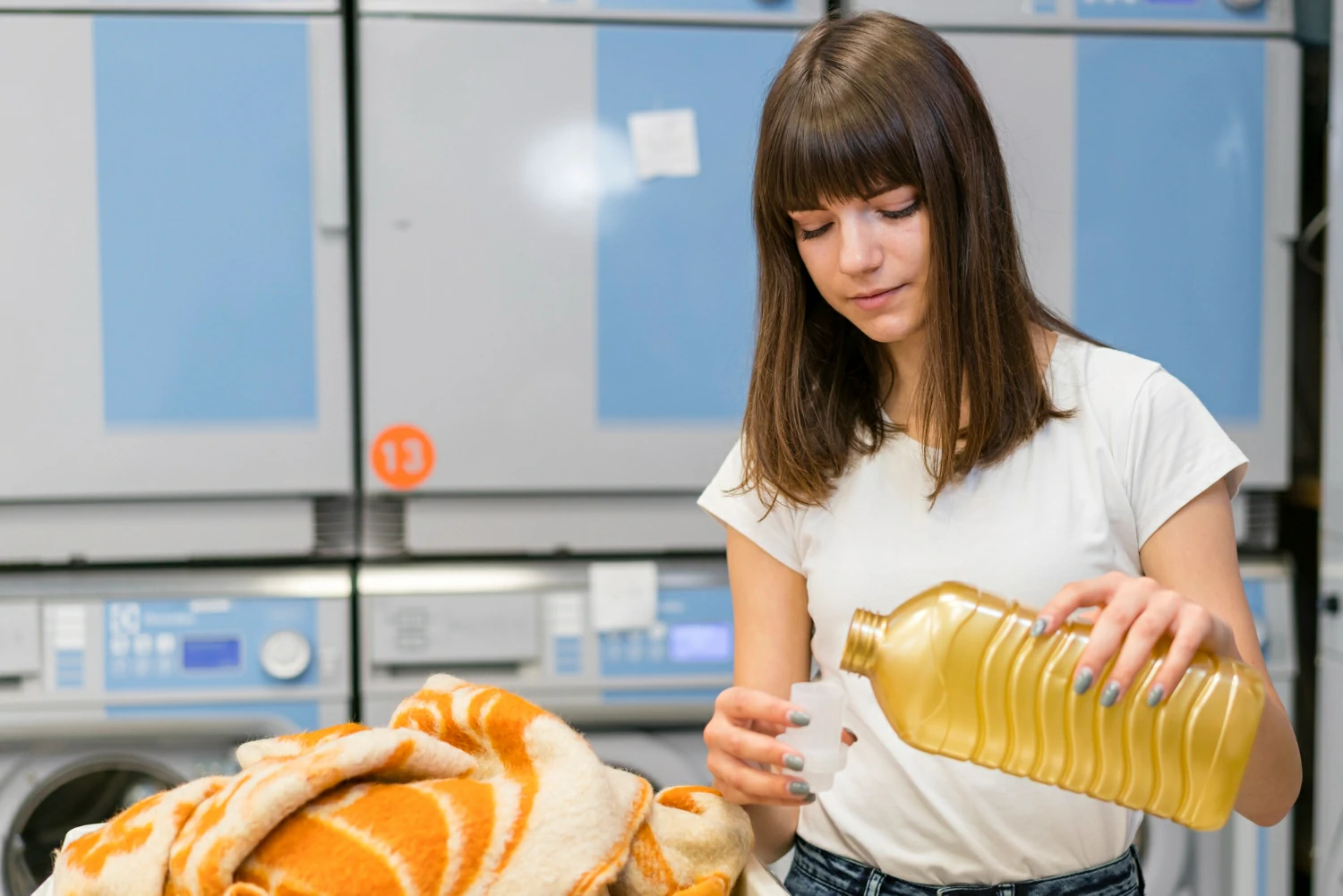
While essential to hotel operations, housekeeping comes with a unique set of challenges. Understanding these helps hotels create strategies to support their housekeeping teams and ensure optimal efficiency.
1. Physical Demands
Housekeeping is a physically demanding job. Housekeepers spend long hours on their feet, bending, reaching, lifting, and carrying. Repetitive motions involved in tasks like making beds or scrubbing bathrooms can lead to strain and injuries.
Best Practices
- Ergonomics training: Teach housekeepers proper lifting techniques, the importance of good posture, and how to use equipment effectively to minimize strain.
- Equipment investment: Provide ergonomic cleaning carts, lightweight vacuums, and tools with comfortable grips to reduce physical stress.
- Task rotation: Implement a schedule that allows housekeepers to rotate between different tasks, preventing overuse injuries from repetitive motions.
2. Time Constraints and Workload
Housekeepers work under tight time constraints to clean a designated number of rooms per shift. Unexpected situations like heavily soiled rooms, guest requests, or maintenance issues can add pressure and create a sense of being constantly behind schedule.
Best Practices
- Realistic room quotas: Set achievable cleaning time targets per room based on the hotel’s standards and room sizes.
- Contingency planning: Have a system for handling unexpected delays or requests, such as assigning a floater housekeeper for support or adjusting room assignments.
- Technology tools: Some hotels use room cleaning status software, allowing housekeepers to update room status in real-time and provide the front desk with accurate information for check-ins.
3. Guest Interactions
Interactions with guests can range from positive to challenging. While friendly encounters can be rewarding, housekeepers may also face complaints, unreasonable demands, or occasionally difficult guests.
Best Practices
- Customer service training: Train housekeepers in basic customer service skills, conflict resolution, and how to handle guest requests with professionalism.
- Respectful boundaries: Encourage guests to use “Do Not Disturb” signs when appropriate, and train housekeepers to respect guest privacy.
- Clear communication: Establish a clear process for handling guest complaints or concerns, empowering housekeepers to escalate issues to supervisors when necessary.
4. Tips for Efficient Housekeeping
Develop a routine: A systematic cleaning routine for each room type minimizes wasted time and ensures all tasks are completed.
Organize your cart: A well-stocked and organized cart allows you to quickly find what you need.
Work in zones: Clean one area of the room completely before moving on to the next, rather than jumping between tasks.
Batch tasks when possible: Group similar tasks together – for instance, change linens in all rooms on your assignment before moving on to cleaning bathrooms.
Communicate with the front desk: Update the front desk on the status of rooms, particularly those that are ready early or may be delayed due to cleaning needs.
Sarah Martinez Expert Opinion
“Efficiency isn’t just about speed, it’s about working smarter,” says Sarah Martinez, a veteran housekeeper and team leader. “By finding a good rhythm and prioritizing tasks, we can meet the hotel’s expectations and still take care of ourselves.”
Conclusion
Hotel housekeeping may often go unnoticed, yet it plays an undeniably vital role in the hospitality industry. From meticulously cleaned rooms to inviting public spaces, the dedication of housekeeping teams directly impacts guest satisfaction, hotel reputation, and overall success.
While physically demanding and sometimes accompanied by challenges, housekeeping is a rewarding profession. Housekeepers take pride in creating clean and comfortable environments, knowing their hard work contributes to a positive stay for every guest.
Understanding the essential skills, tools, and best practices of hotel housekeeping fosters a deeper appreciation for those who work behind the scenes. Hotels that prioritize fair workloads, supportive environments, and recognize the importance of their housekeeping staff are positioned for long-term success.
The Future of Housekeeping
Technological advancements are poised to reshape the future of hotel housekeeping. We may see increased adoption of:
- Robotics: Robots can assist with tasks like vacuuming, delivering linens, or room disinfection.
- Smart room technology: Sensors monitoring room occupancy and cleaning needs optimize housekeeping schedules.
- Sustainable practices: Emphasis on eco-friendly cleaning products and waste reduction techniques aligns with growing guest preferences.
FAQs
Q: How much do hotel housekeepers make?
Hotel housekeeper salaries vary depending on location, hotel size and type, and experience. Resources like Glassdoor and Indeed offer localized salary information and job postings.
Q: What are the typical working hours for hotel housekeepers?
Housekeepers often work during standard daytime business hours, though some hotels may offer evening or weekend shifts. Housekeeping schedules frequently align with check-in and check-out times.
Q: Do guests typically tip hotel housekeepers?
While not mandatory, tipping hotel housekeepers is considered a courteous gesture to recognize their hard work. Leaving a small tip daily, especially for longer stays, is a common practice for many guests.
Q: Are there career advancement opportunities in hotel housekeeping?
Absolutely! Hardworking and detail-oriented housekeepers can advance to supervisory roles, floor supervisors, or even executive housekeeping positions. Larger hotels may have specialized departments for laundry or public space cleaning, offering a variety of career paths.
What is hotel housekeeping?
Hotel housekeeping is the department dedicated to maintaining cleanliness, orderliness, and aesthetic appeal throughout a hotel. This includes guest rooms, public areas, back-of-house spaces, and sometimes even outdoor areas.
What are the typical duties of a hotel housekeeper?
Housekeepers change bed linens, replace towels, clean bathrooms, vacuum carpets, dust surfaces, tidy up the room, and restock guest room supplies. They might also report any maintenance issues and address special requests for guests.
Why is hotel housekeeping important?
Hotel housekeeping is crucial for maintaining guest satisfaction, positive reviews, and a hygienic environment. A clean, well-kept accommodation is a fundamental expectation of any hotel stay.
What skills do you need to be a hotel housekeeper?
Attention to detail, physical stamina, organizational skills, time management, the ability to work independently, and sometimes customer service skills are all valuable for hotel housekeeping.







